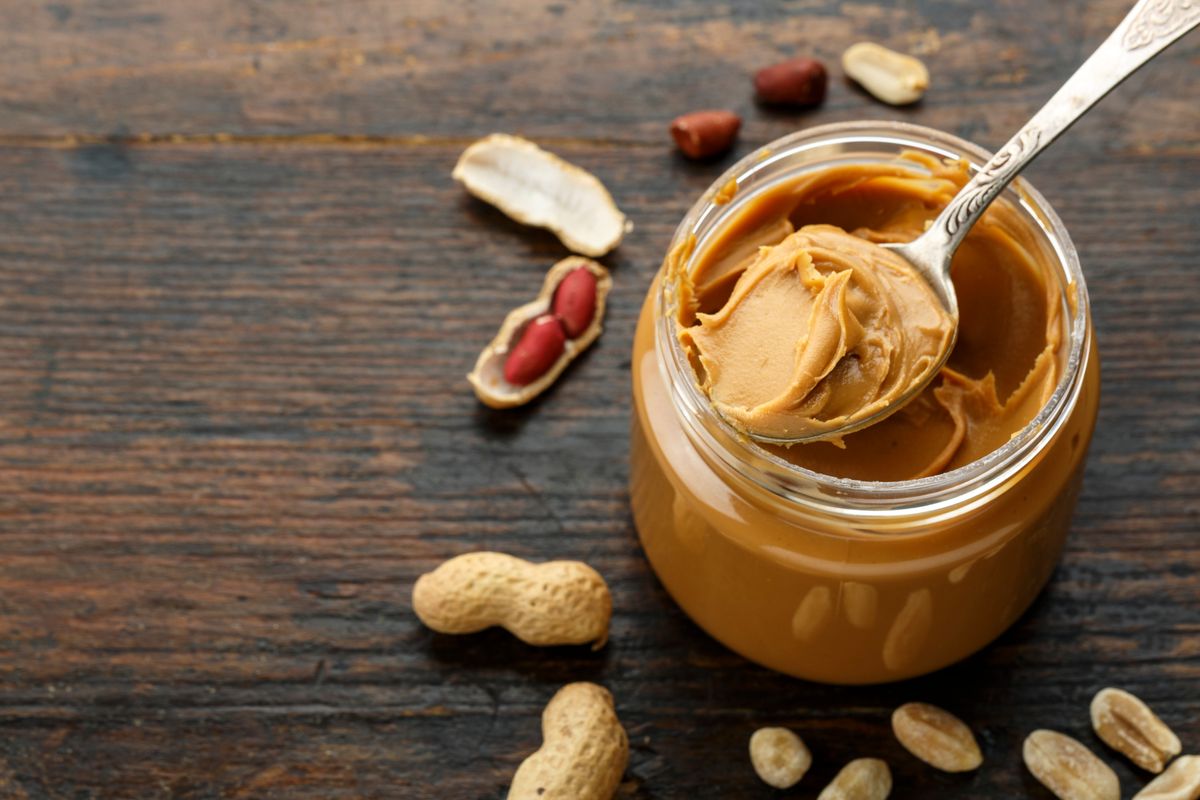There are countless types and variations of peanut butter available, but not all of them are equally healthy. And when it comes to creative ways to eat peanut butter, like Elvis Presley's infamous sandwich, there's no telling what kind of impact it might have on your health.
The Elvis sandwich featured two slices of white bread loaded with creamy peanut butter, mashed banana, jelly, and four strips of bacon, all fried in butter. It's said that Elvis first encountered this gooey concoction at a diner in 1976 that served a similar dish called the Fools Gold Loaf, which consisted of a full loaf of sourdough bread, a jar of peanut butter, a jar of jelly, and a pound of bacon. This calorie-laden snack reportedly contained around 8,000 calories!
Despite its unhealthy reputation, peanut butter can be a nutritious and affordable source of protein (with 7 grams per serving) and mostly healthy fats (just 3.5 grams are saturated). However, it's not without its downsides. Keep reading to learn more about the potential benefits and drawbacks of including peanut butter in your diet.
13 Benefits of Eating Peanut Butter:
1) The weight loss benefits of peanut butter
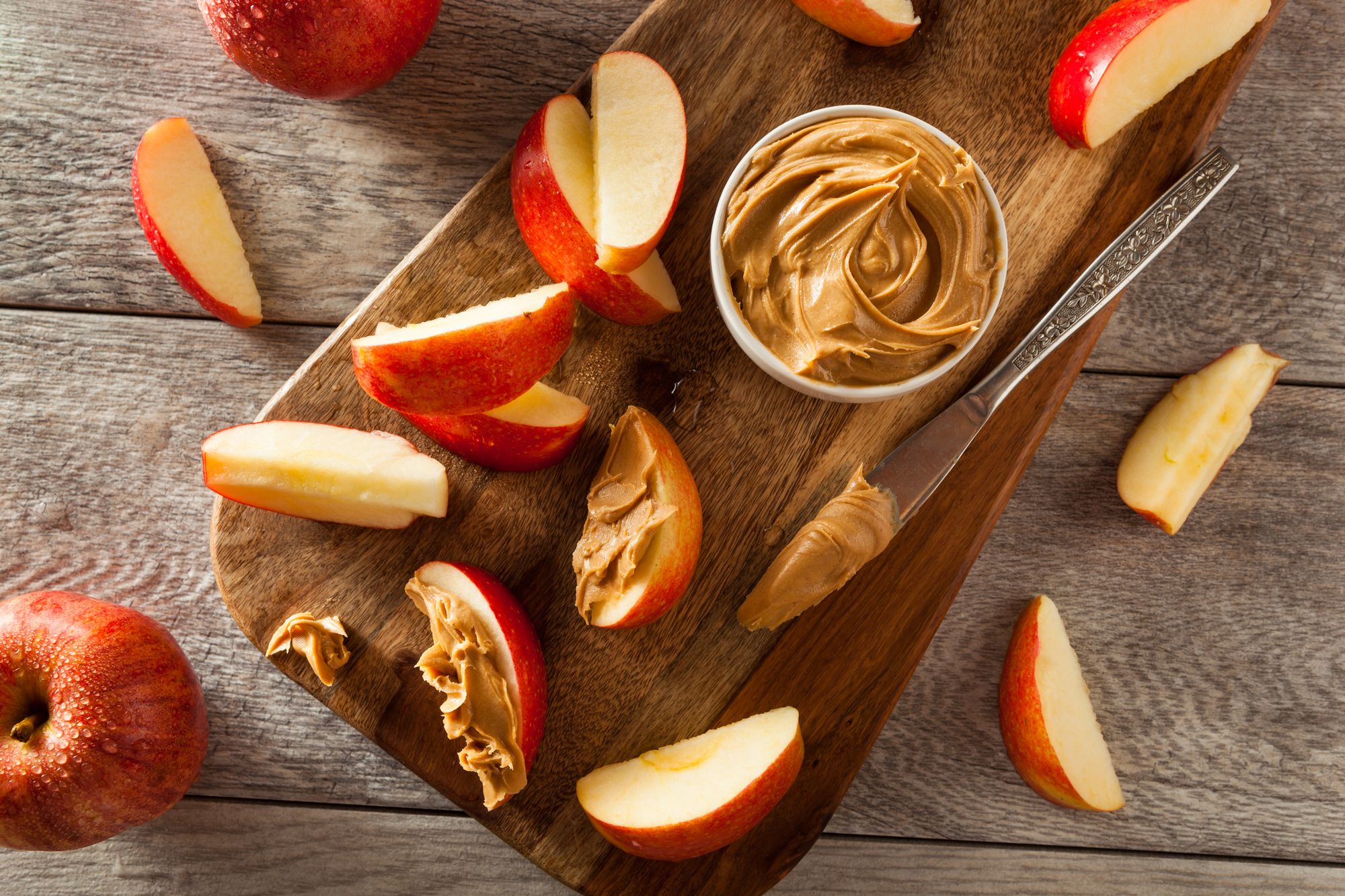
Eating peanut butter may aid weight loss due to its high protein and fat content, which digests more slowly than carbohydrates. According to Katherine Gomez, RD, a registered dietitian and medical reviewer, the protein in peanut butter (7 grams per 2 tablespoons) keeps you full for longer periods, reducing the need for snacking throughout the day. Studies show that protein is the most effective macronutrient at reducing levels of the hunger hormone, grehlin. An American Journal of Clinical Nutrition study found that overweight women who increased their daily protein intake by 15% consumed 441 fewer calories daily without consciously trying to restrict their eating.
2) Peanut Butter Could Have Cardiovascular Benefits
Peanut butter may have heart-healthy benefits due to its high content of coenzyme Q10, an antioxidant important for energy and heart health, says Josten Fish, RDN, owner of Dietitian Meets Mom. Research suggests that individuals with heart problems can improve symptoms and lower blood pressure by increasing their intake of CoQ10. While your body naturally produces this antioxidant, production decreases as you age. Consuming nuts, fish, and meat or taking dietary supplements can help boost your intake. Peanut butter is also rich in monounsaturated fats that can help reduce levels of LDL "bad" cholesterol in your blood, potentially lowering your risk of heart attack and stroke.
3) Peanut Butter Can Help You Build More Muscle

As you age, your testosterone levels start to decline which can lead to a decrease in lean muscle mass, known as sarcopenia, according to endocrinologist Florene Comite, MD, founder of Groq Health. To combat this age-related muscle loss, it's important to consume more protein (such as nuts, eggs, and fish) and engage in strength-training exercises. Peanut butter is a great choice for a pre- or post-workout snack due to its protein content, which can support muscle growth.
4) Peanut Butter May Have a Pain-relieving Effect on Muscles
If you are taking statins to lower your cholesterol levels, you might want to consider adding peanut butter and jelly to your diet. According to research, patients who take statins often experience mild to moderate muscle soreness. To alleviate this side effect, doctors recommend supplementing with CoQ10, an antioxidant that helps with energy and heart health. In a study, 50 patients who took statins and reported muscle pain were divided into two groups. One group was given CoQ10 supplements for 30 days, while the other group was given a placebo pill. The results showed that 75% of the patients who took CoQ10 experienced a reduction in muscle pain.
5) Enjoy the Nutritional Benefits of Beef Without Eating Red Meat
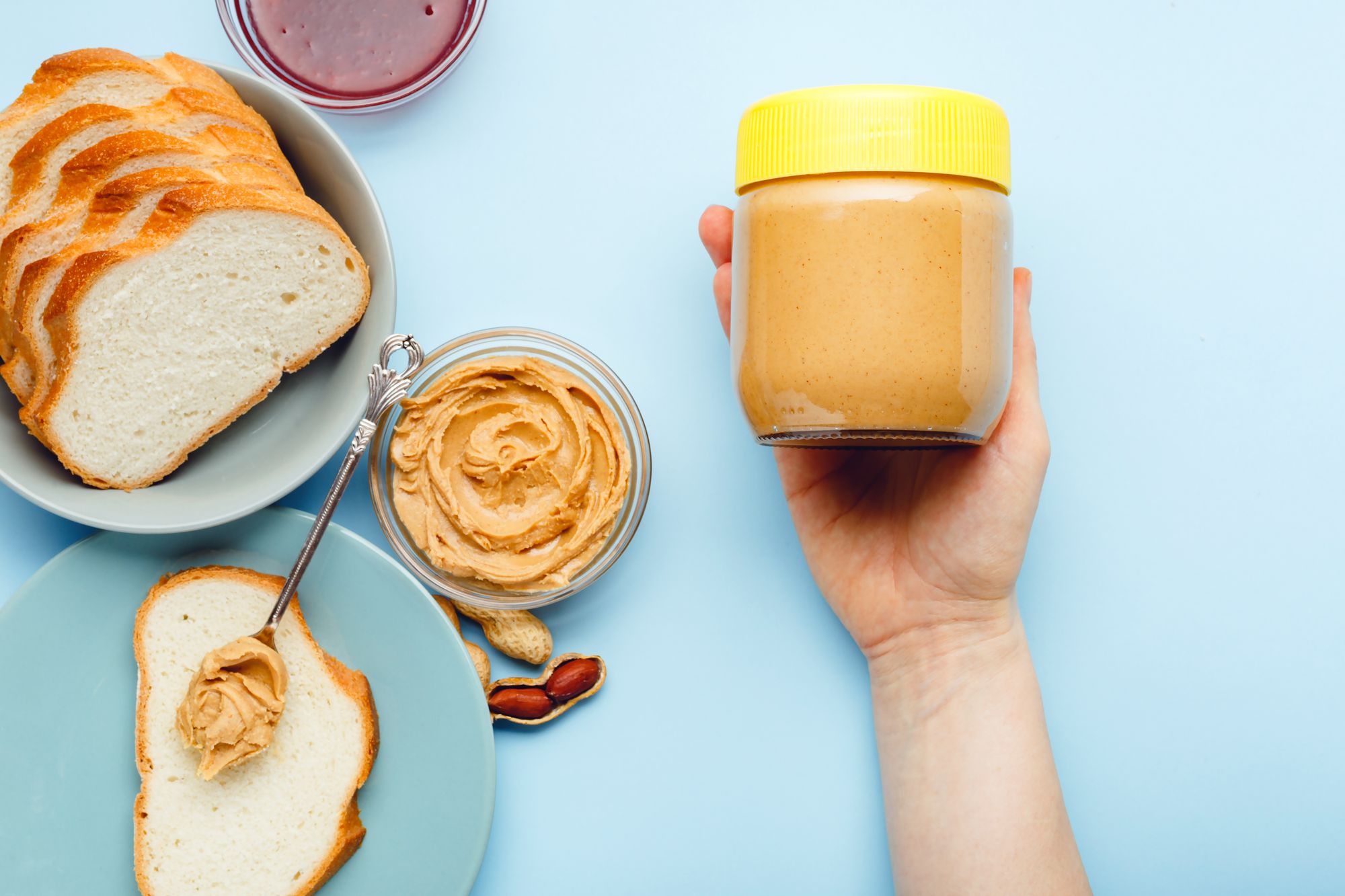
100 grams of peanut butter provides 22.21 grams of protein, which is slightly less than the 24.85 grams in the same amount of steak, but it offers similar amounts of vitamins and minerals. However, peanut butter is richer in calcium, magnesium, phosphorus, potassium, copper, and vitamins B1, B3, and Folate compared to steak. Additionally, peanut butter is higher in fats, containing 51 grams compared to steak's 19 grams. But the majority of the fats in peanut butter are the healthier mono- and polyunsaturated fats.
6) Peanut Butter Consumption May Reduce the Risk of Stroke
Consumption of peanuts and peanut butter in Japan is not as common as it is in the United States, but this may soon change following a recent Japanese study. According to the study published in the American Heart Association's journal, Stroke, individuals who consume just four to five peanuts per day have a 16% lower risk of suffering any type of stroke. Additionally, the risk of blood clot-related stroke decreased by 20% during the study. Lead study author Satoyo Ikehara stated that nutrients found in peanuts, such as monounsaturated fatty acids, polyunsaturated fatty acids, vitamins, minerals, and dietary fiber can help reduce risk factors, including high blood pressure and high levels of LDL cholesterol.
7) Peanut Butter Could Potentially Help Reduce Chronic Inflammation
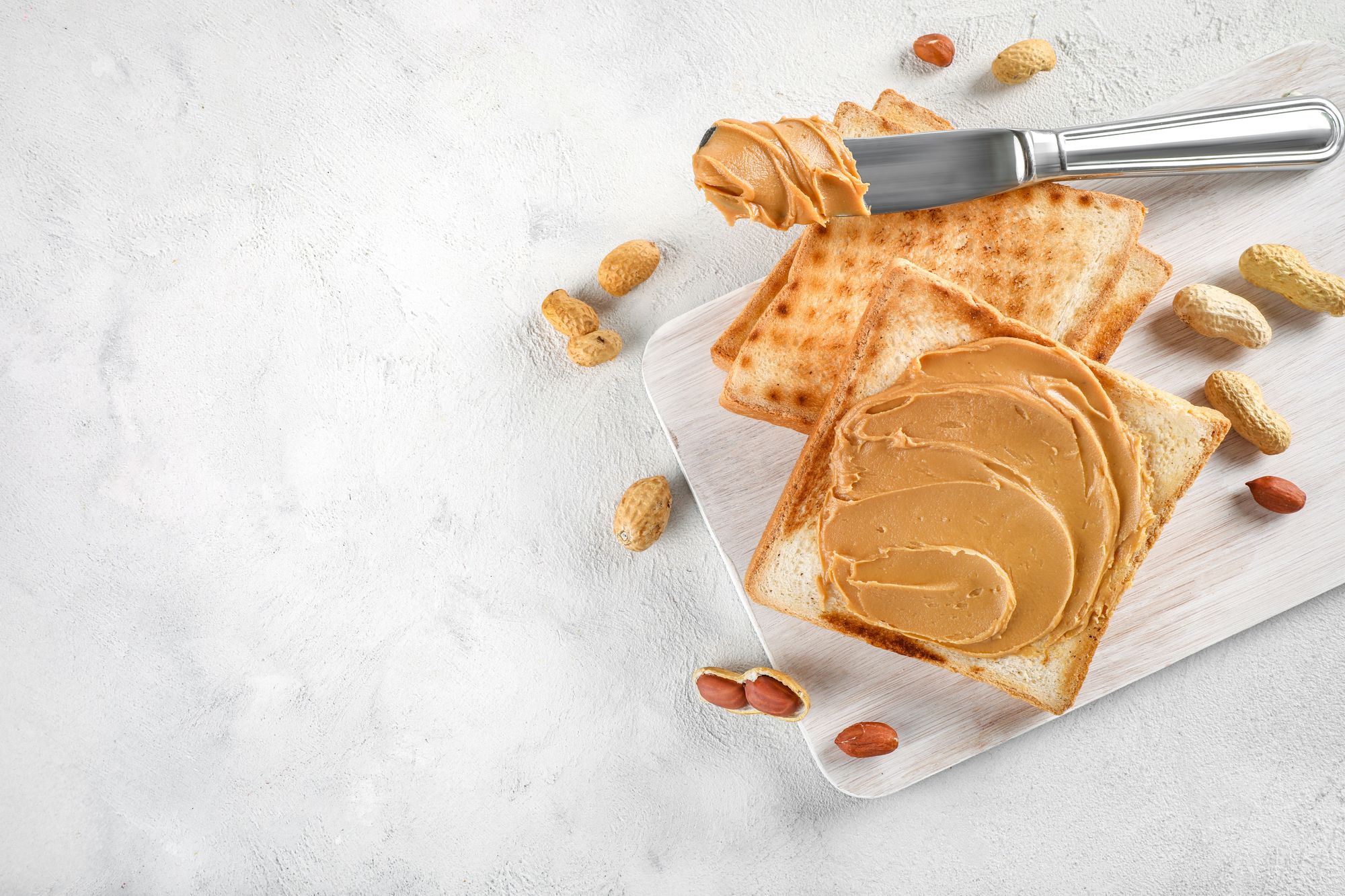
According to research by Satoyo Ikehara, the nutrients found in peanuts and peanut butter can help reduce chronic low-grade inflammation. Magnesium is one of these nutrients, and a meta-analysis of studies in Nutrients found that supplementing with magnesium can significantly reduce chemical markers of chronic inflammation, such as C-reactive protein (CRP). CRP is produced by the liver and rises when there is inflammation throughout the body.
8) Peanut Butter May Help Prevent Diabetes
Including natural peanut butter without added sugars in your diet can help manage blood sugar levels due to its low-glycemic properties. The combination of protein, fat, and fiber in peanut butter work together to slow down the absorption of carbohydrates into the bloodstream, according to registered dietitian Stephanie Wells, MS, RD, owner of Thyme to Go Vegan Nutrition Services.
A small study conducted in 2018 showed that eating a few tablespoons of peanut butter after a high-carbohydrate meal can reduce blood glucose spikes. In the study, participants were given two slices of white bread and apple juice for breakfast, and their blood glucose levels were tested. The next day, they were given the same meal with the addition of 2 tablespoons of peanut butter, and their blood glucose levels were tested again. The researchers found that the peanut butter significantly lowered the participants' blood glucose levels compared to the results from the first day's meal without peanut butter.
9) Peanut Butter may Boost Your Brain Function
Research indicates that consuming peanut butter, which is high in monounsaturated fats, can enhance the production of acetylcholine, a neurotransmitter crucial for memory and learning. Inadequate levels of acetylcholine have been linked to memory impairment and Alzheimer's disease. Moreover, nuts consumption has been found to impact brainwave activity, leading to improved cognitive processing, memory and recall, as per other studies.
10) The Ultimate Craving Buster
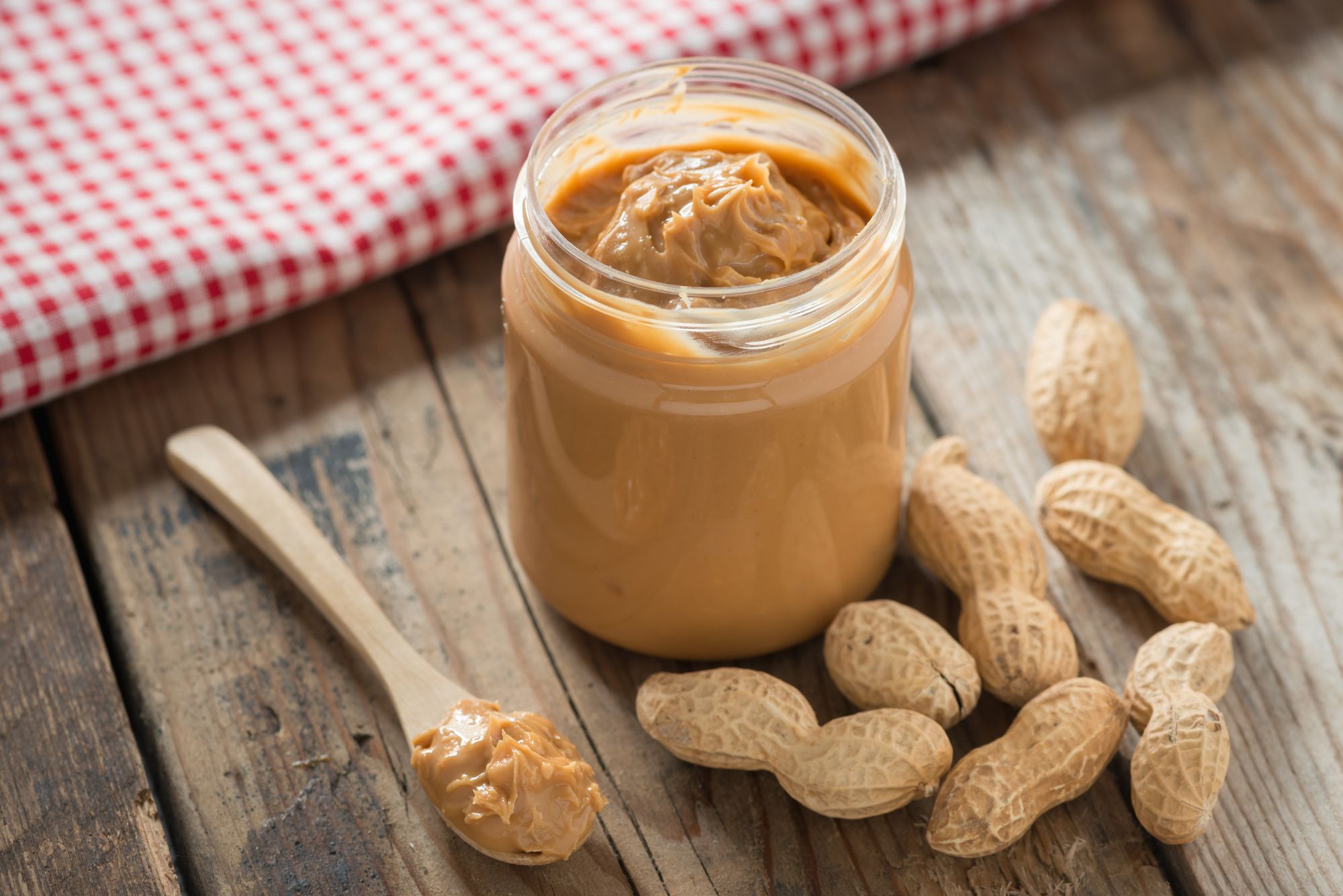
Try this: the next time you feel hungry before lunch, try spreading some peanut butter on apple slices. The protein in peanut butter can help keep those cravings for high-calorie foods at bay, allowing you to consume fewer calories at lunchtime. Peanut butter is an excellent snack choice for satisfying cravings, as it is high in protein, similar to a hard-boiled egg, and it is also budget-friendly, according to registered dietitian Amy S. Margulies.
11) Getting a Good Night's Rest: How Peanut Butter Can Help
Consider trying a tablespoon of peanut butter if you struggle to fall asleep. Peanuts are a natural source of tryptophan, an amino acid that enhances sleep quality. Studies have revealed that tryptophan plays a crucial role in producing the calming hormone serotonin and the natural sleep hormone melatonin.
12) How Peanut Butter can Benefit the Health of Older Adults
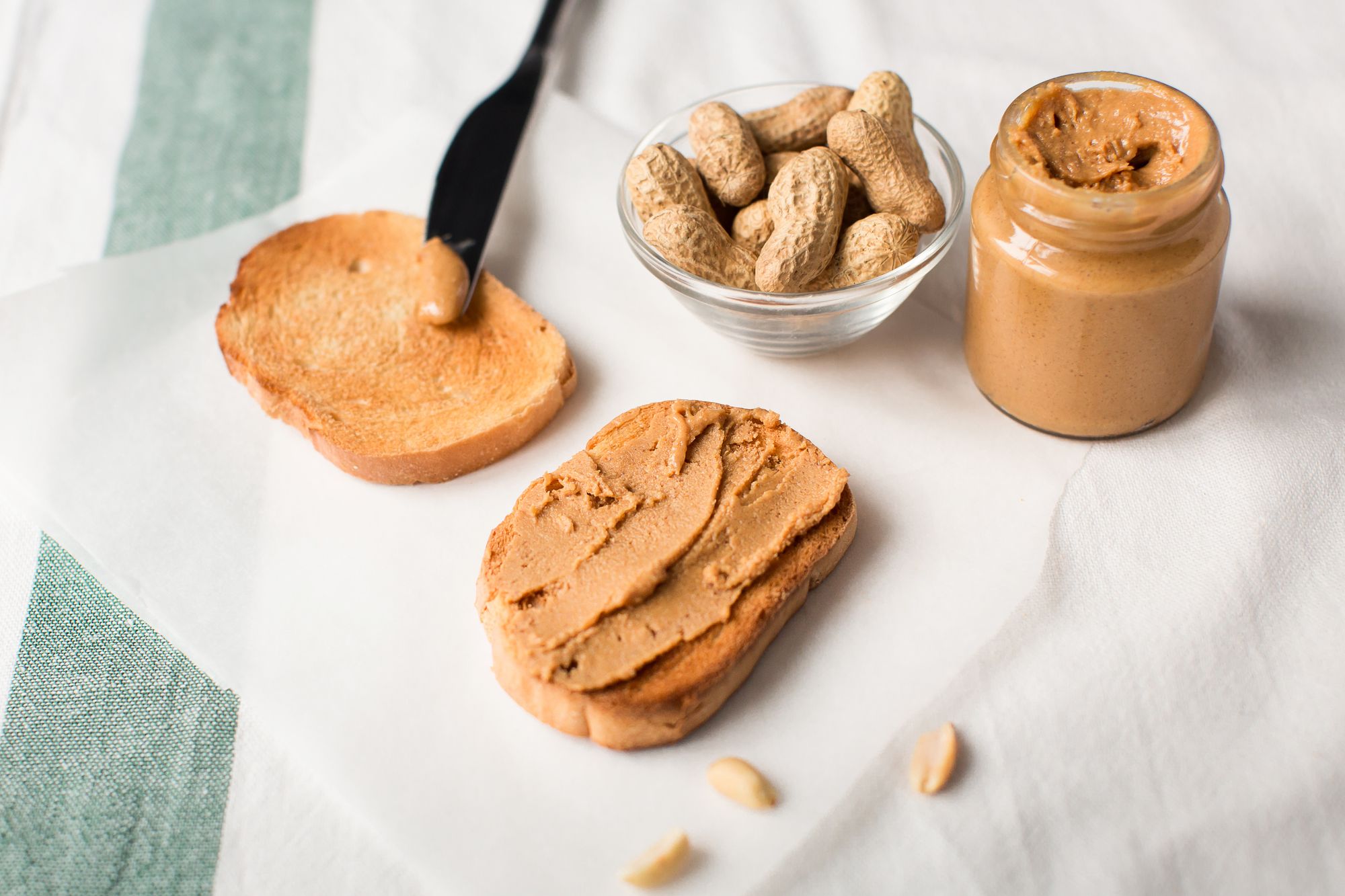
For those who need to gain weight or have poor appetites such as older adults or cancer patients, peanut butter is an ideal food option due to its high calorie content. While it may not be suitable for those who are trying to watch their weight, it can serve as an easy and delicious way to add calories to one's diet. According to registered dietitian Stephanie Wells, "It's also a good option for people who have poor appetites, such as older adults or cancer patients, who need easy strategies for adding calories."
13) Peanut Butter's Anti-Cancer Properties
Peanut butter, when consumed in moderation, can offer numerous health benefits such as weight management, heart health, and blood sugar control due to its high protein and fiber content. In addition, it is also nutritionally dense, containing important nutrients like vitamin E, magnesium, and potassium that may play a role in cancer prevention. Studies have suggested that consuming peanuts and peanut butter could potentially reduce the risk of certain types of cancer, such as colorectal cancer. For instance, a 2021 meta-analysis found that consuming a teaspoon of peanut butter daily was associated with a 4% lower risk of cancer mortality and a 6% and 25% lower risk of pancreatic and colon cancers, respectively.
7 Possible Negative Effects of Eating Peanut Butter: What You Need to Know
1) Peanut Butter and Blood Sugar: What You Need to Know
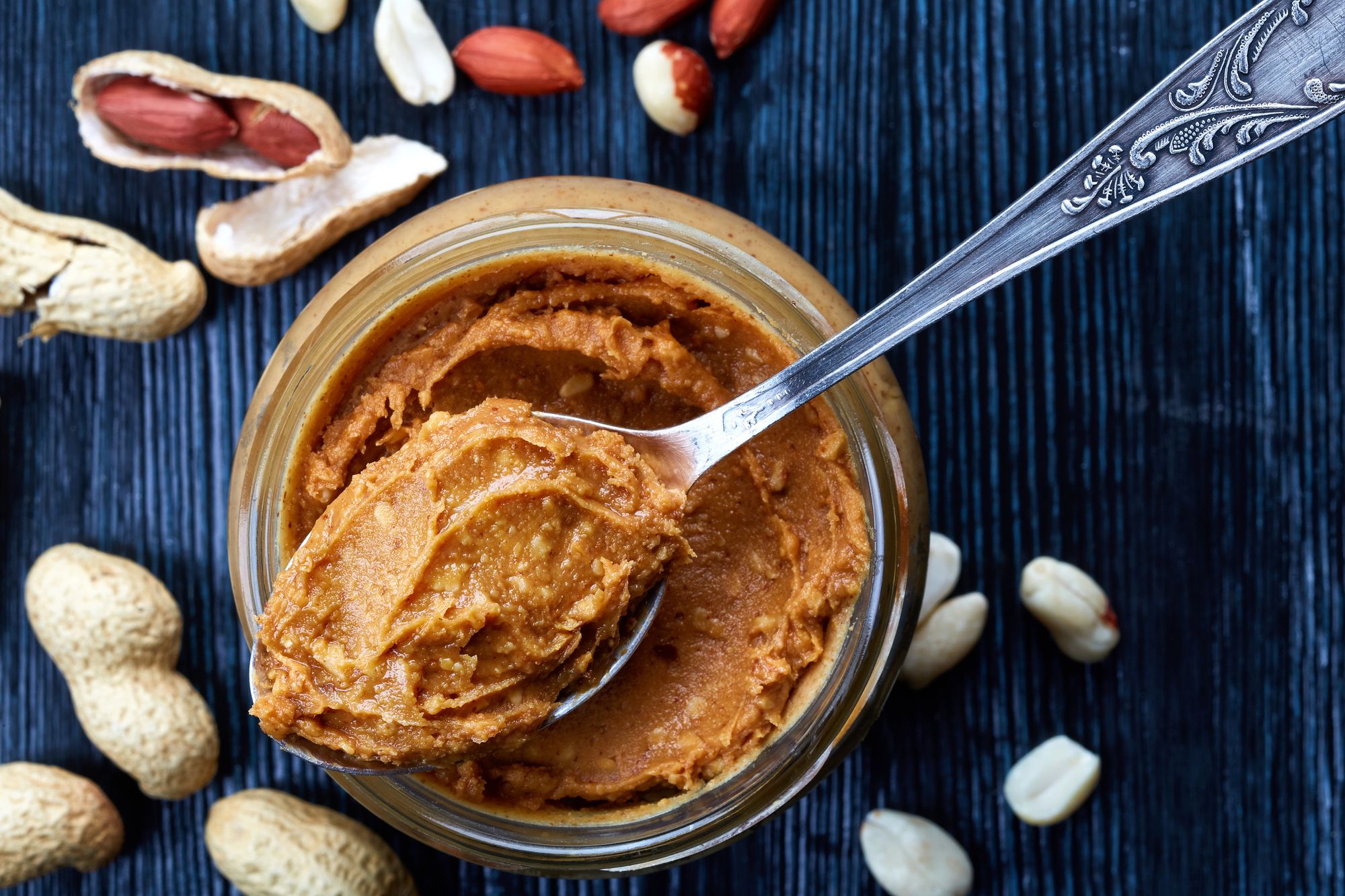
Registered dietitian Catherine Karnatz warns that some peanut butter varieties, such as honey roasted, have high amounts of added sugar that can cause an increase in blood glucose and possibly lead to insulin resistance. Eating too much added sugar over time may increase the risk of developing type 2 diabetes and cavities. To maintain balanced blood sugar levels, Karnatz recommends choosing peanut butter brands that have less than 5 grams of sugar per serving. Natural peanut butter is typically made from just two ingredients, peanuts and salt, and is a good option.
2) Excessive consumption of peanut butter may cause nutrient deficiency
Fish, a registered dietitian, warns that relying solely on peanut butter for protein and fats may lead to nutrient deficiencies. Peanut butter lacks the essential amino acid methionine, which is responsible for various functions in the body and is only found in meat, fish, and dairy products. Vegetarians may have a difficult time getting enough methionine, and eating peanut butter alone would not provide an adequate amount. To ensure proper nutrient intake, Fish recommends supplementing one's diet with foods that are higher in methionine such as oats, quinoa, and sunflower seeds.
3) Peanut Butter and Bloating: Understanding The Link

Consuming excessive amounts of peanut butter, which is rich in protein, may lead to digestive issues such as bloating and gas, according to Katherine Gomez, RD, a registered dietitian with clinical nutrition and research experience in major hospitals. The body takes longer to digest protein than other macronutrients, which can cause discomfort if consumed in excess. To avoid bloating, it's important to practice portion control and consume peanut butter in moderation.
4) Peanut Butter and Weight Gain: Is there a Link?
According to Margulies, overeating peanut butter regularly could contribute to weight gain since it contains 200 calories per 2-tablespoon serving. She advises against assuming that "low-fat" peanut butter is healthier because when fat is removed, sugar may be added in its place. Additionally, some brands add hydrogenated oils, which are unhealthy.
5) You May be Consuming Unhealthy Additives in Your Peanut Butter
Trista Best, a registered dietitian at Balance Once Supplements, warns that not all peanut butter products are made equal. Even some of the best brands can have added sugars and unhealthy additives, so it's important to carefully read nutrition labels and ingredients lists. For instance, Jif Natural Creamy Peanut Butter Spread is not 100% peanut butter, despite its name. This product contains added sugar, palm oil, and molasses, and while palm oil is better than trans fats, excessive amounts of saturated fatty acids can lead to coronary artery disease. Additionally, studies have linked added sugars to an increased risk of cardiovascular disease.
6) Peanut Butter Can Cause Anaphylaxis

According to Kieran McSorley, RD, chief operating officer of Brentwood Physio Calgary, while peanut butter is generally safe to eat in moderation, some individuals may experience allergic reactions. These reactions can range from mild to severe and in extreme cases, may cause difficulty in breathing, a condition known as anaphylaxis.
7) Small Risk of Mold Contamination
In some parts of the world, a fungus called aflatoxin can grow on crops like peanuts during storage and processing. Consumption of peanut butter contaminated with this mold can cause liver damage, including liver cancer and liver failure. However, this is generally not a concern in the United States, as regulations and quality control measures are in place to prevent such contamination.

